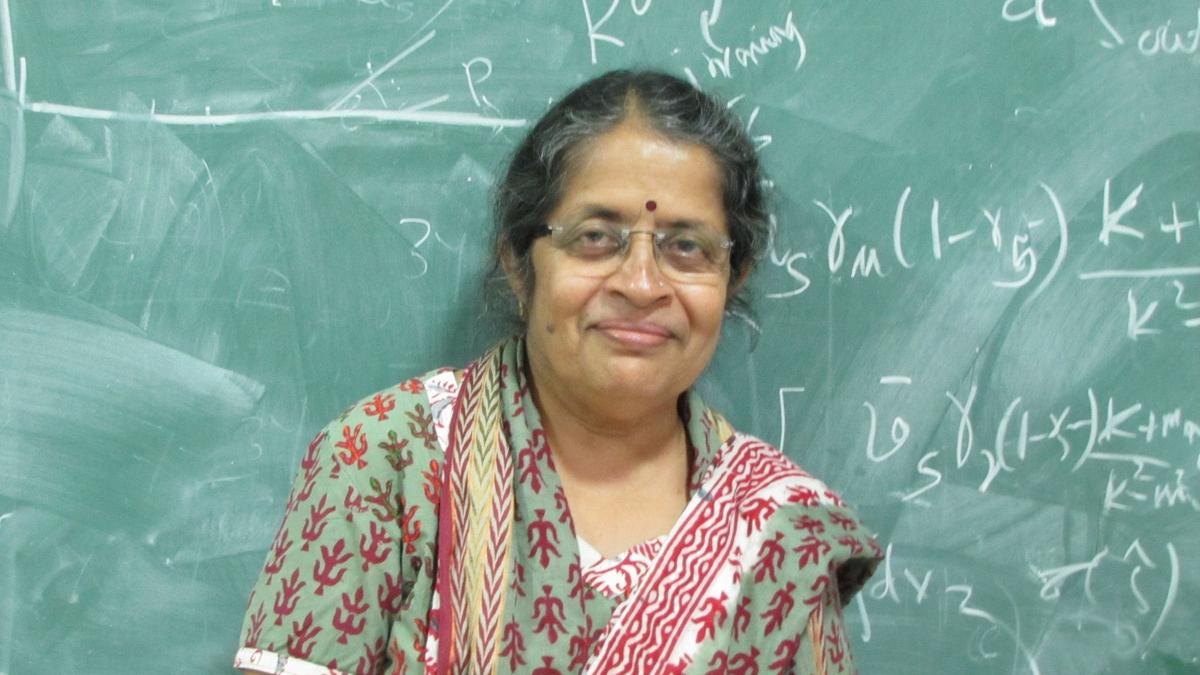
Rohini Godbole: a passion for high-energy physics, gender equity
The Hindu
Rohini Godbole, a pioneering theoretical physicist in collider physics, inspired generations of researchers worldwide with her work and advocacy.
Collider physics studies the outcome of high-energy collisions between microscopic particles such as protons or electrons to learn about the fundamental constituents of our universe. If one mentions this subject in the context of India, the name of Rohini Godbole will be among the first to come up. Prof Godbole passed away on October 25 after a brief illness. She was 71.
Born into a middle-class Pune family committed to education and learning, she became an internationally renowned theoretical physicist. Her parents supported her career choice but she faced condescension and gender bias from professional colleagues at crucial stages of her career. Yet it was not in her nature to be discouraged. She got through the difficult times with energy and determination, with a passion for research and an ability to inspire students. In time, she won global recognition as an accomplished researcher, educator, policymaker, and administrator of science.
A graduate of S.P. College in Pune, Prof Godbole got a master’s degree at IIT Bombay and went on to do a PhD at the State University of New York at Stony Brook (now Stony Brook University) in the U.S. During the 1970s, the physics department under the leadership of Chinese-American Nobel laureate C.N. Yang had developed a top-class doctoral programme. Unlike Ivy League colleges that could be prejudiced against students from India in those days, Stony Brook was more open-minded. In fact, it quickly became enthusiastic about Indian students, largely due to the success of early recruits such as Prof Godbole.
Thus she helped pave the way for many others (including myself) to study at the same institution, which I joined a few years later. Our small contingent, newly arrived from India and quite nervous, was fortunate to encounter her as we entered the department on our first day. Her warm welcome contrasted sharply with the standoffish attitude of some other Indian seniors. In the subsequent years she continued to offer us advice and encouragement with a characteristic generosity of spirit.
Prof Godbole was popular with both faculty members and students at Stony Brook and was perceived as one of their most talented students. Yet, when she completed her doctorate in 1979, she declined postdoctoral offers from the U.S. and Europe and returned to work at the Tata Institute of Fundamental Research (TIFR), Mumbai. I remember the day her first publication from India reached us in Stony Brook. That she could continue to carry out high-quality research convinced many of us a career back home was a valid option, and we were inspired to eventually head back ourselves.
Her early days in India were not easy. Despite excellent work, she was told she lacked the talent to become a high-quality independent researcher. She joined Bombay University where she had a heavy teaching load even as the system was indifferent to her research, although she acknowledged the support and mentorship of some senior colleagues.
After a heavy day of teaching she still had the energy to commute across town to TIFR and carry on joint research with the faculty there. Without even a small desk at which to work, she remained focused on research and did not complain about what the rest of us saw as gender-based discrimination. In 1995 she was offered a faculty position at the Indian Institute of Science, Bengaluru, where her life as a researcher became less stressful and she could recruit and guide doctoral students. At this stage her career soared and she soon became a celebrity.











